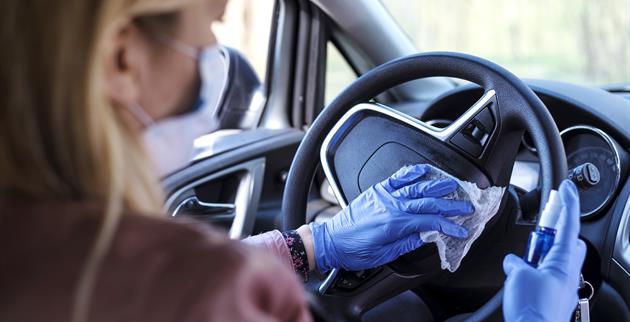Coronavirus Car Care: How to Keep Your Car Healthy During a Stay-at-Home Order


Among many other aspects of our lives, COVID-19 has certainly made 2020 a year to remember (or forget). Your vehicle may not be driven as often, but be sure to maintain it by following the above tips from the experts, and Live Assured.
While most regions are advancing towards opening back up, closures have undoubtedly affected how and when we hop in the car. With the prospect of these orders lasting a few more weeks, and potentially months in some areas, the lack of use of your vehicle can lead to problems. Read on for tips on how to care for your car during these times!
Today’s high-tech vehicles often have multiple computers that are always on and monitoring the car’s systems. These computers do absorb energy, and if a car is sitting and not recharging, the battery can actually die within two weeks! Even if you don’t have an elaborate computer system, your vehicle will still need care.
These automotive service experts help us understand what the biggest potential problems are and what steps we can take now to prevent them! Here’s what we’ve learned.
Dead Batteries
To avoid a dead battery, you should start your car once a week and let it run for at least 10 minutes. Experts agree that driving it for those 10 minutes helps to recharge quicker and more efficiently. If your start your vehicle to let it run inside of your garage, be sure to open the garage door to ensure proper ventilation for the exhaust fumes.
Gasoline Degradation
Gasoline degrades over time, but modern sealed fuel systems help to minimize fuel oxidation and preserve fuel life. However, experts estimate that gas can last as long as 6 months before it goes bad in your gas tank and kills your vehicle.
If you’re especially concerned about a vehicle that has a tank of gas and you won’t be driving it much, you can treat it with a fuel stabilizer, which can extend the life of the fuel for up to two years. This also applies to your snow blower, lawn mower, or other gas-powered equipment.
Take a Brake!
When you’re not driving, rust can form on the brake rotors, especially if your vehicle is parked outside and is exposed to the elements. It doesn’t take long for a film or rust to start building up on them. When you drive your vehicle, this build-up of rust can line the brake-pad and result in that screeching noise, uneven braking, and brake-pedal pulsation.
To help save your brakes, instead of starting the vehicle to save the battery, drive the vehicle for 10 minutes around your neighborhood and save your brakes and battery, simultaneously.
Under Pressure
Proper tire pressure is important, too. Maintaining proper tire pressure helps with the car’s performance, safety and gas mileage! Like anything that holds air, air will naturally escape from your tires so be sure to frequently check and maintain the manufacturer’s recommendations for tire pressure.
Don’t Delay Your Oil Change!
Driving less doesn’t necessarily mean you should prolong getting your oil changed. If your car is sitting and not being driven regularly, the oil can deteriorate due to temperature fluctuations.
Stay on your cycle of getting your oil changed, so long as your local mechanic is able to perform the service!
Among many other aspects of our lives, COVID-19 has certainly made 2020 a year to remember (or forget). Your vehicle may not be driven as often, but be sure to maintain it by following the above tips from the experts, and Live Assured.
This information is intended for educational purposes only and is not legal advice and/or an authoritative guide.